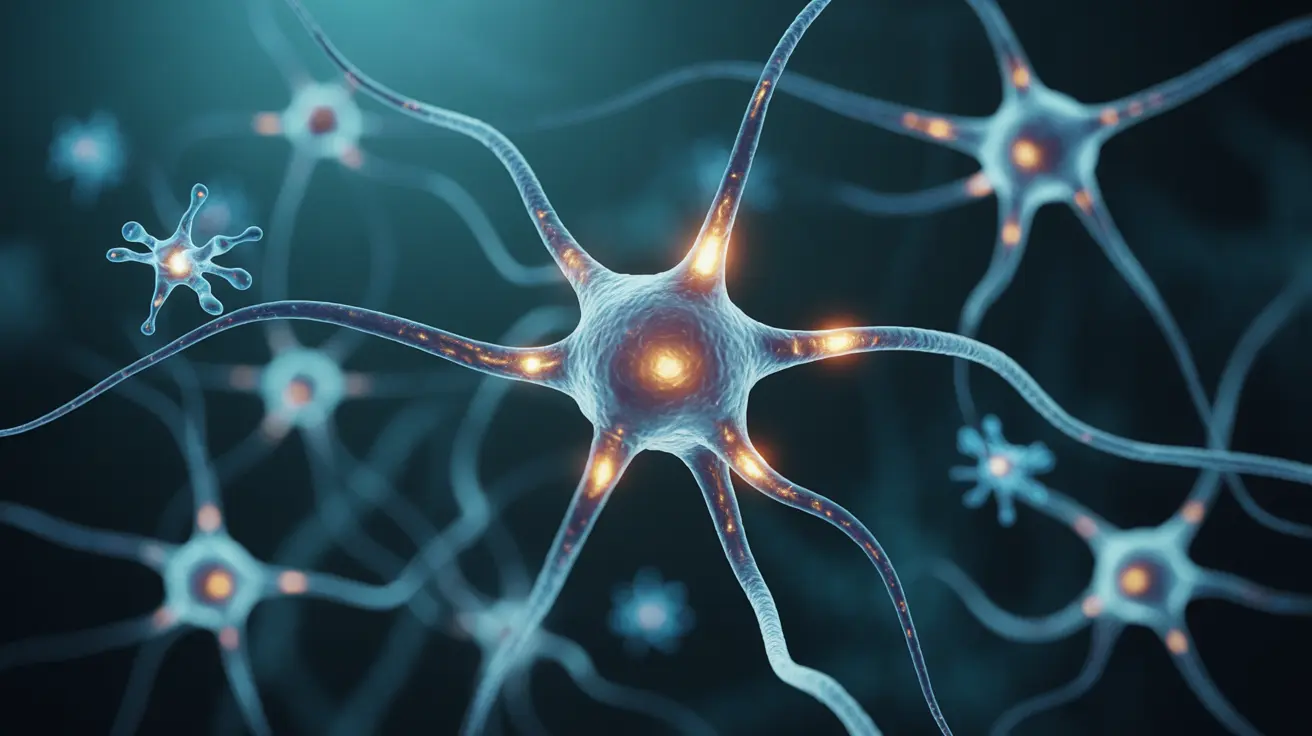GABA (gamma-aminobutyric acid) is one of the most important neurotransmitters in your brain, playing a crucial role in promoting calmness, reducing anxiety, and regulating various aspects of brain function. As your nervous system's primary inhibitory neurotransmitter, GABA helps balance brain activity and supports mental well-being.
Understanding how GABA works in your body can provide valuable insights into managing stress, anxiety, and sleep issues naturally. This comprehensive guide explores GABA's functions, benefits, and its potential role in various health conditions.
The Science Behind GABA
GABA functions as a chemical messenger in your brain, helping to slow down nerve cell activity and promote a sense of calm. When GABA binds to its specific receptors in the nervous system, it creates a calming effect by reducing the excitability of neurons.
This neurotransmitter works alongside other brain chemicals to maintain a delicate balance between excitation and inhibition in your nervous system. Think of GABA as your brain's natural "brake pedal," helping to prevent overstimulation and promote relaxation.
GABA's Role in Mental Health
Proper GABA function is essential for maintaining mental health and emotional well-being. This neurotransmitter influences several key aspects of mental health:
- Anxiety regulation
- Mood stabilization
- Stress response
- Sleep quality
- Mental focus and clarity
When GABA levels or function are disrupted, it can contribute to various mental health challenges and neurological conditions.
Natural Sources of GABA
While GABA is primarily produced in your brain, certain foods can help support healthy GABA levels or contain small amounts of the compound:
- Fermented foods (kimchi, kefir, tempeh)
- Green, black, and oolong tea
- Whole grains
- Nuts and seeds
- Legumes
- Mushrooms
Additionally, certain lifestyle practices can help support healthy GABA function in your body, including regular exercise, meditation, and maintaining good sleep habits.
GABA Supplements and Their Effects
GABA supplements have gained popularity as a natural approach to managing anxiety and sleep issues. However, research on their effectiveness is mixed, primarily due to questions about how well supplemental GABA crosses the blood-brain barrier.
Some people report benefits from GABA supplementation, including:
- Reduced anxiety symptoms
- Improved sleep quality
- Better stress management
- Enhanced relaxation
- Clearer thinking
Medical Conditions and GABA Dysfunction
Several health conditions have been associated with altered GABA function or levels:
- Anxiety disorders
- Depression
- Insomnia
- Epilepsy
- Chronic stress conditions
- Some neurodevelopmental disorders
Frequently Asked Questions
What is GABA and how does it affect brain function and relaxation? GABA is your brain's primary inhibitory neurotransmitter that helps calm neural activity. It promotes relaxation by reducing neuron excitability and helping to regulate stress responses in the brain.
Can taking GABA supplements help reduce anxiety and improve sleep? While some people report benefits from GABA supplementation for anxiety and sleep, scientific evidence is mixed. The effectiveness may vary among individuals, and it's important to consult healthcare providers before starting any supplement regimen.
How does GABA interact with its receptors in the nervous system? GABA binds to specific receptors (GABA-A and GABA-B) on nerve cells, triggering changes that reduce neural activity and promote calming effects throughout the nervous system.
Does GABA naturally occur in foods, and which foods contain it? Yes, GABA occurs naturally in fermented foods, teas, whole grains, and certain vegetables. Fermented foods like kimchi and tempeh typically contain the highest natural levels.
What medical conditions are associated with low GABA levels? Low GABA levels or dysfunction have been linked to anxiety disorders, depression, insomnia, epilepsy, and certain neurodevelopmental conditions. These conditions may involve disrupted GABA signaling rather than just low levels.




